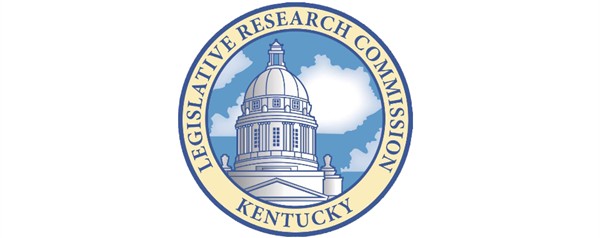
By LRC Public Information
FRANKFORT, KY (March 13, 2020) – The COVID-19 virus that is causing disruptions across the state – and in countries throughout the word – prompted a postponement of General Assembly action at the end of this week as Senate and House leaders announced that legislative activity would take a break until March 17.
Bringing people together is in many ways the heart of the legislative process. Citizens from across the state come to the Capitol Campus and crowd into meeting rooms to view proceedings and offer their input. Lawmakers sit nearly elbow-to-elbow in committee rooms and legislative chambers as they deliberate and debate the issues. And, of course, the Capitol must lead the state in most handshakes per square foot. It’s the close-knit nature of the legislative process that helps find solutions to the challenges confronting our state. And yet, it’s that very closeness that could also allow the possible spread of a viral outbreak that has been classified as a pandemic. Legislative leaders say the break in the session, which was called for out of an abundance of caution, will provide a chance to evaluate safety procedures for the remainder of the session.
As of the afternoon of March 13, 11 Kentuckians had tested positive for coronavirus. Health officials say the threat to Kentuckians is currently low and that the rate of exposure can be greatly reduced by taking precautions and avoiding exposure. That’s why events and activities across the country that draw crowds are being temporarily suspended and many schools are taking a break from in-person classes.
One measure that took a step forward in the legislative process this week could help school districts deal with school closings caused by COVID-19 concerns. House Bill 461 would allow schools to use additional nontraditional instructional days, up to a total of 20 such days, when schools are closed due to a health-related state of emergency declared by the governor. Nontraditional instructional days, which are offered by some but not all school districts, give students opportunities to complete assignments and continue learning from home even when schools are closed. The use of nontraditional instructional days also keeps schools from having to schedule make-up days to meet the state’s school year requirements.
The legislation would allow a school district without a nontraditional instructional plan to submit such a plan for the state’s approval for the remainder of this school year. It would also allow the commissioner of education to waive the requirement that a school provide 1,062 instructional hours during the school year if the school can’t complete the hours but has maximized instructional time.
House Bill 461 was approved by the House Education Committee and now awaits consideration from the full House.
In other business this week, lawmakers approved measures on numerous other topics, including:
Abortion. House Bill 67 proposes an amendment to the Kentucky constitution dealing with abortion. The bill proposes that the following words be added to the constitution: “To protect human life, nothing in this Constitution shall be construed to secure or 8 protect a right to abortion or require the funding of abortion.“ The bill passed the House 71-21 and has been delivered to the Senate. If the bill is approved there, Kentuckians would vote on the constitutional amendment this November.
Human trafficking. House Bill 2 would require a national anti-human trafficking hotline number to be advertised in airports, truck stops, train stations and bus stations. Posters with the hotline number are currently required in rest areas. The bill would also close a loophole in the state sex offender registry by adding specific human trafficking offenses to the definition of a sex crime. Those convicted of human trafficking offenses would face a minimum $10,000 fine to be paid to the state human trafficking victims’ fund, which would be moved to the Office of the Attorney General. House bill 2 was approved by the House on Tuesday on an 87-0 vote and has been delivered to the Senate.
Legal advertisements. Senate Bill 178 would require plaintiff lawyer advertisements that target consumers of prescription drugs and medical devices to warn viewers that it is dangerous to stop taking a prescribed medication without first consulting a doctor. It would prohibit use of a government agency logo in a manner that suggests an affiliation and would prohibit ads that solicit legal business from being labeled a “medical alert” or “health alert.” The measure would also protect personal health information from being sold for soliciting legal services without the written authorization of the patient. The legislation was approved by the Senate 21-13 on Monday and awaits consideration from the House.
Virginia laws. Senate Bill 106 contains a proposed constitutional amendment to repeal Section 233 of the state constitution, which states that certain laws in effect in Virginia before June 1792 are in effect in Kentucky. Supporters of the measure say that part of the constitution is an antiquated section from the time when Kentucky split from Virginia and became the 15th state. The bill passed the Senate by a 32-2 vote. If approved by the House, Kentucky voters would decide on the proposed constitutional amendment in November.
To share feedback with lawmakers on the issues under consideration, call the General Assembly’s toll-free message line at 1-800-372-7181.
--END--









